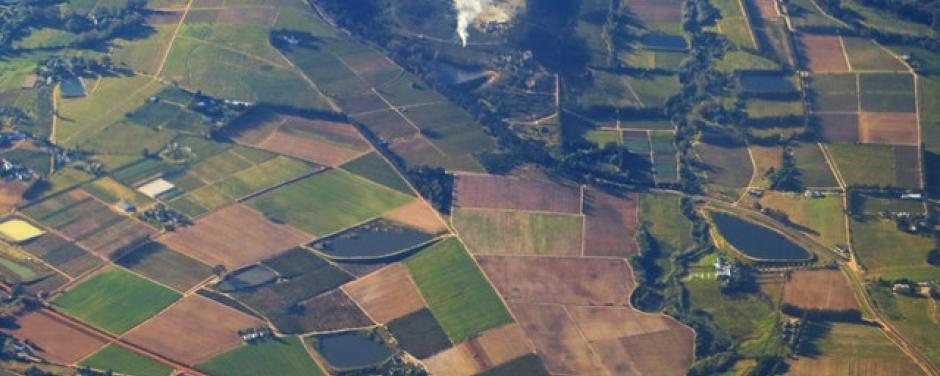Rethinking Our Approach to Land Ownership
(Posted September 28, 2019)
Mission Moments tells stories of how United Chruch of Christ congregations are connected to the wider church. It is published by the United Church of Christ.
Jeremiah, faced with a people and a situation devoid of hope did what you would expect a man of God to do. He engaged in a risky real estate transaction.
Okay, you’re right. That’s actually the very last thing you’d expect a man of God to do when faced with the destruction of his people, his holiest place of worship, his city and his culture.
You’d expect him to exercise prudence, to be careful, to guard what little he had against the coming difficulties. Instead Jeremiah negotiated the purchase of a piece of land.
Chief Seattle, leader of the Suquamish and Duwamish people in the Pacific Northwestern United States, said “humankind has not woven the web of life. We are but one thread within it. Whatever we do to the web, we do to ourselves. All things are bound together. All things connect.”
Today’s passage reminds us that God’s children have not always gotten land ownership right. We have too often used land ownership as a mode of severing ourselves from our connection with all things. We have made land ownership a tool or a weapon, forgetting that our God is the God of all the world, not just the God of a single people. Forgetting the connection that binds us with all humanity, we have made land ownership a divine right in our own minds, even committed terrible atrocities to control the land we think we own.
Too often, land ownership has been a matter of greed controlled by violence, instead of a reason for hope and opportunity to experience God’s grace and joy. What if we thought of stewardship of the land as our part of the web of a connected creation, rather than the opportunity to acquire resources? What if land ownership was not a divinely ordained right, but instead, we approached our care of all land as the joyful result of our interconnection with all beings.
Imagine if our approach to land ownership came from an attitude of abundance and grace. How would this have changed our history? Is there a way that we could bring that attitude with us into the future?
_____
Today on American Indian Ministry Sunday, we recognize The Council for American Indian Ministry (CAIM). According to caimucc.com, CAIM “is comprised of five ministries with 22 congregations in Minnesota, Wisconsin, Nebraska, North Dakota and South Dakota…We are an integral part of the life of the United Church of Christ. We maintain our Indian traditions by employing our Native values and cultures to witness in our communities through authentic and postcolonial Indian expressions of the Christian faith. We are a gathering ‘place’ for all UCC Indian people who seek such a place.”

